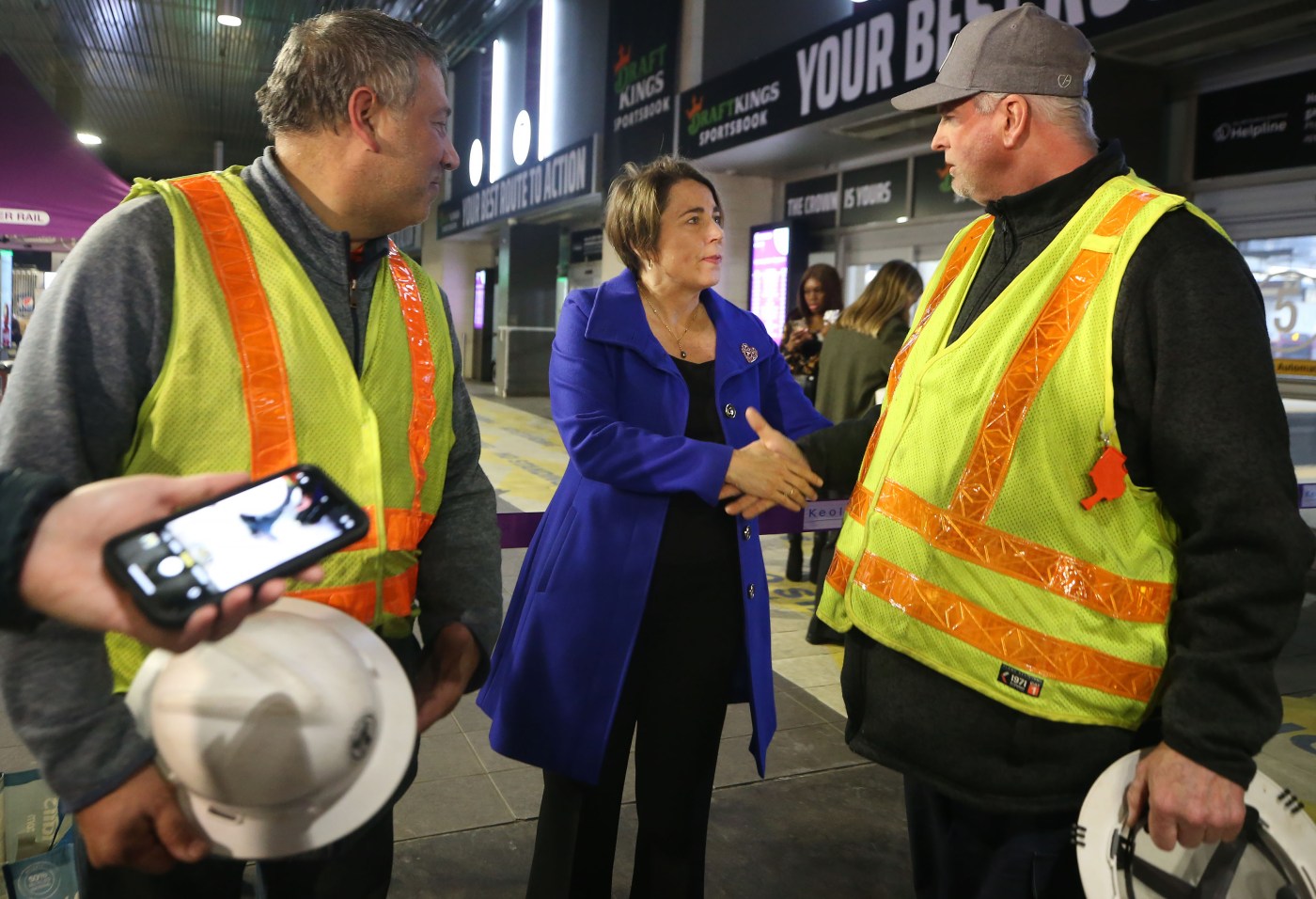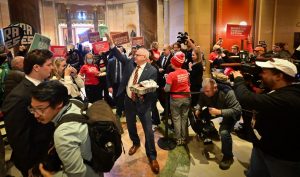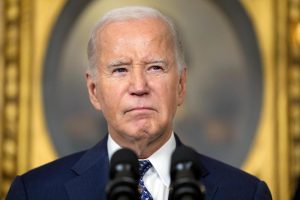
Healey won’t rule out tax hikes if needed to fix the MBTA
The governor would not rule out the possibility of raising taxes if that’s what it takes to get the state’s beleaguered transportation system back on track.
Gov. Maura Healey, speaking to reporters at North Station on Monday as she made her rounds selling her fiscal 2025 spending plan, seemed to indicate that she will not shy away from touching the third rail of Massachusetts politics: the MBTA.
“I have not been afraid to take this head-on,” Healey said, her voice pitched to carry over the station’s departure announcements and the rumble of arriving trains.
Healey has proposed more than doubling the state’s contribution to the T’s operating budget — jumping from $127 million in fiscal 2024 to $314 million in fiscal 2025 — as well as transferring $1.5 billion in sales tax revenue to the transportation network and spending $45 million to subsidize fares for residents making 200% or less of the federal poverty rate.
MBTA General Manager Phil Eng said the spending proposal represents a level of investment not seen in the public transportation sector “in over a decade,” and while it may not necessarily be a bill she wants to pay, the governor said it’s one she must settle after past administrations have chosen to let the problem fester.
“This administration is not going to be about kicking the can down the road, which frankly is what has happened for far too long — for years, decades, right? It’s why we’re in the hole that we have been in that we’re digging out of, ” she said Monday at North Station.
As part of that effort, Healey will convene a new task force focused on figuring out how to pay for the $25 billion in improvements and maintenance the T needs to reach what Eng describes “as state of good repair” and to cover a projected $567 million revenue shortfall in fiscal 2025.
Transportation Secretary Monica Tibbits-Nutt acknowledged the group has its work cut out.
“We are going to be talking about all of the options, but at this point, if we had the answer, we would’ve already used it to help fund the T,” she said.
TransitMatters Executive Director Jarred Johnson, a frequent critic of the MBTA, said that Healey’s plan is a “down payment” on fixing critical infrastructure and that it represents a shift in the agency’s long-standing downward trajectory.
“This important increase to the operating budget helps avoid dire service cuts,” he said.
In an effort to put more butts in seats and make the MBTA a more viable means of transportation than sitting in traffic on I-93, the Healey Administration is also considering a plan to offer lower fares to those who qualify.
Subway, bus, and commuter rail ticket costs could be cut in half for low-income Bay State residents by this summer, if the potentially $60 million per year plan offered by Healey and Eng gets the seal of approval from the transportation agency’s board of directors at their March meeting.
“This has been an effort several years in the making, and under the Healey-Driscoll administration, we are excited to be closer than ever to making this program a reality,” Michael Cole, a Department of Transitional Assistance deputy commissioner, said during a press call Monday morning. “Affordable public transportation is crucial for people with low incomes, providing essential access to employment, education, health care and other services.”
For riders like Dick Snyder, a retiree living in Billerica, a reduced fare could mean the difference between booking time at a doctor’s office in Boston or finding somewhere closer to home. Snyder, 70, who had taken the commuter rail into North Station for a morning appointment and was waiting for the train home when Healey spoke, said that as of right now, getting into the city is a headache no matter how he goes about it.
“I have to ask myself: do I pay for parking or pay for the rail ticket? Do I lose an hour sitting in traffic or wait an hour for a ride home if I miss my train?” he said. “It if cost half as much it’d be a no-brainer. I would take the rail every time. Every time I come in. At that price, who wouldn’t?”
Reducing fares could result in over $700 in annual savings for qualifying subway and bus riders and nearly $2000 each year for the most expensive commuter rail tickets, according to MBTA officials.
Herald wire services contributed.


